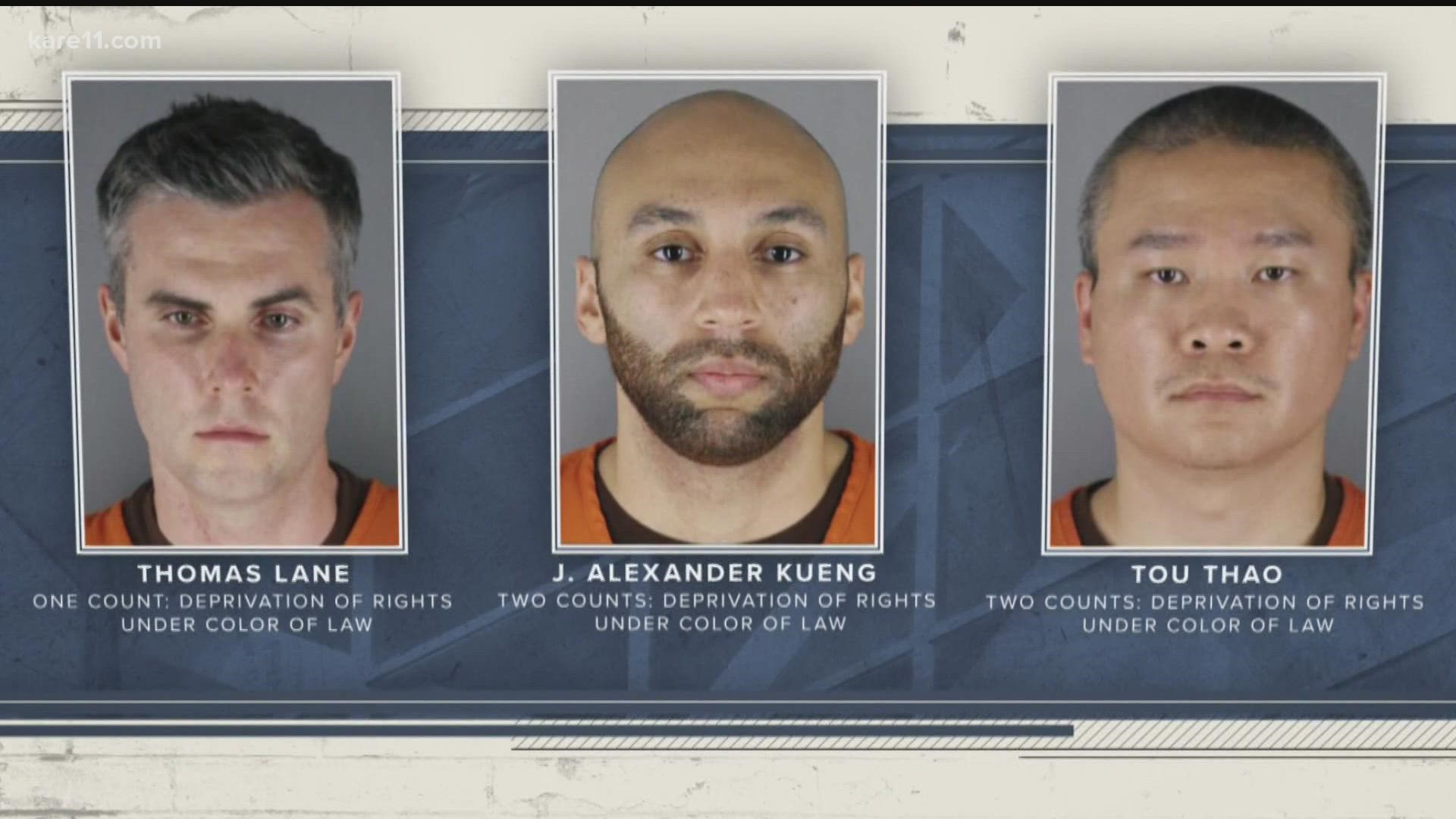ST PAUL, Minn. — Jurors resumed deliberations Thursday in the trial of three former Minneapolis police officers charged with violating George Floyd's civil rights after reaching no verdict in its first day.
The 12-person panel met for about seven hours Wednesday with no decision on the charges against J. Alexander Kueng, Thomas Lane and Tou Thao. All three are charged with depriving Floyd of his right to medical care as white officer Derek Chauvin pinned the 46-year-old Black man to the ground for more than nine minutes, his knee on Floyd's neck.
Kueng and Thao are also charged with failing to intervene in the May 25, 2020 killing that was captured on bystander video, triggering protests worldwide and a reexamination of racism and policing.
Prosecutors told jurors during closing arguments that the three officers “chose to do nothing” as Chauvin squeezed the life out of Floyd. Defense attorneys countered that the officers were too inexperienced, weren’t trained properly and did not willfully violate Floyd's civil rights.
All 12 members of the jury - eight women and four men - appear to be white, although the court has not released demographics such as race or age. A woman who appeared to be of Asian descent was excused Tuesday from the panel without explanation, while a man who appears to be of Asian descent remains as an alternate if one of the current 12 becomes ill or cannot continue.
Lane is white, Kueng is Black and Thao is Hmong American.
The all-white panel is a sharp contrast to the jury that deliberated the state murder case against Chauvin. That jury was half white and half nonwhite. The federal jury pool was selected from people throughout the state, including areas much more conservative and less diverse than the Minneapolis area from which Chauvin's jury was drawn.
Chauvin was convicted of murder and manslaughter, and later pleaded guilty to a federal civil rights charge.
Alan Tuerkheimer, a Chicago-based jury consultant, said potential jurors with obvious extreme views about the case likely were weeded out during jury selection. But the geographic makeup of the final 12 could matter.
“The more suburban, the more rural, the less-populated place, the more deferential attitude there is to police,” said Tuerkheimer, who lived in Minnesota for several years. “I think that’s something the defendants had going in: When you broaden the pool outside the metro area, you do tend to get people who are a little more sympathetic (to police).”
Watch more local news:
Watch the latest local news from the Twin Cities in our YouTube playlist:

